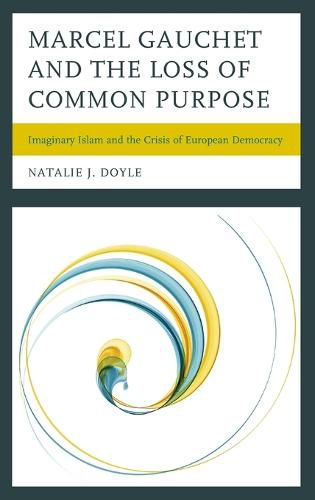Readings Newsletter
Become a Readings Member to make your shopping experience even easier.
Sign in or sign up for free!
You’re not far away from qualifying for FREE standard shipping within Australia
You’ve qualified for FREE standard shipping within Australia
The cart is loading…






This book explores the work of Marcel Gauchet, one of France’s most prominent contemporary intellectuals, to examine the contemporary crisis of European democracy. It does so by examining the threats from ideological co-radicalization associated with the combined impact of economic crisis and Islamic fundamentalism. It locates Gauchet’s ideas in the context of French intellectual history and notes the significant influence upon it of the social and political theories of Cornelius Castoriadis and Claude Lefort and its reaction against those of Foucault. The book reviews the entire scope of Gauchet’s writings, from the early publications to the most recent publications on the new world of neo-liberal individualism, economism, and globalization. The book reveals how Gauchet’s work overcomes many of the misunderstandings affecting current discussions of controversial topics including the European Union, the nation-state, political Islam, the paradoxes of democracy, secularization, and reactionary political movements. It highlights the need for European societies to rediscover their political underpinnings: their capacity to invent a new collective future starting from the nation-state and to adapt to a new mode of international relations on a global scale. To do so, and to counter the threat of radicalization, they must retrieve the lost common purpose encapsulated in the notion of democratic sovereignty.
$9.00 standard shipping within Australia
FREE standard shipping within Australia for orders over $100.00
Express & International shipping calculated at checkout
This book explores the work of Marcel Gauchet, one of France’s most prominent contemporary intellectuals, to examine the contemporary crisis of European democracy. It does so by examining the threats from ideological co-radicalization associated with the combined impact of economic crisis and Islamic fundamentalism. It locates Gauchet’s ideas in the context of French intellectual history and notes the significant influence upon it of the social and political theories of Cornelius Castoriadis and Claude Lefort and its reaction against those of Foucault. The book reviews the entire scope of Gauchet’s writings, from the early publications to the most recent publications on the new world of neo-liberal individualism, economism, and globalization. The book reveals how Gauchet’s work overcomes many of the misunderstandings affecting current discussions of controversial topics including the European Union, the nation-state, political Islam, the paradoxes of democracy, secularization, and reactionary political movements. It highlights the need for European societies to rediscover their political underpinnings: their capacity to invent a new collective future starting from the nation-state and to adapt to a new mode of international relations on a global scale. To do so, and to counter the threat of radicalization, they must retrieve the lost common purpose encapsulated in the notion of democratic sovereignty.